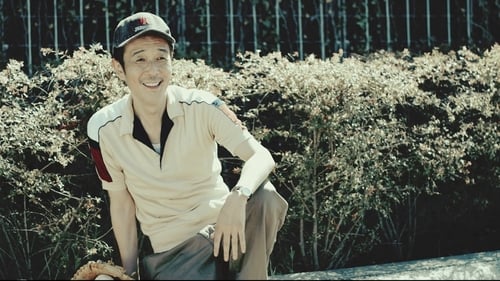
Thirteen years after abandoning his wife and two sons by stepping out for a pack of cigarettes and never returning, deadbeat gambler Masato dies of stomach cancer. At his funeral, a motley crew of fellow mahjong players, pachinko parlor employees and former drinking buddies gather to pay their respects and tell stories, revealing aspects of Masato’s life that complicate his sons’ resentment towards him.

Takaaki Kondo
Natsuko Kotani was born to be a swindler. Meanwhile, Tetsuko Ishida is Natsuko’s distant relative. Unlike Natsuko, Tetsuko is an attorney with an upright disposition. Whenever Natsuko makes trouble, Tetsuko is called to solve her troubles. Believing that Natsuko is using her, Tetsuko, with her boring life, begins to change.
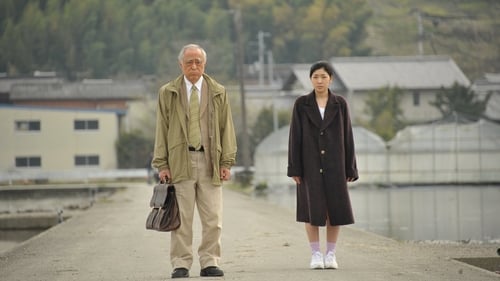
Shozo Kataoka
Sawa, a home helper for a middle class family with an elderly infirm grandfather, is forced to stretch her morals to keep her job. As a result, she finds herself broke and out on the street. She survives her first night by striking up an ambiguous friendship with a kindly old man, gaining access to a portion of the immense wealth held by Japan's aging population. She continues with similar encounters, and while these begin as scams or revenge on rampant sexism, they ultimately become vulnerable intergenerational exchanges.

Two sisters living on a peach farm in Koori town, Fukushima Prefecture,are opposites. Haruka Miyamoto feels less beautiful than her sister Akiba Miyamoto and hates being compared to her. She finds comfort in playing a piano in a barn. A year after the Great East Japan Earthquake, she decides she wants to be a pianist. Akiba, for her part, moved to Tokyo to attend college. When she moves back to Koori, Haruka is unsettled and memories connected to the disaster she has tried to forget resurface.

Shigeo Yazaki
"Elite" members of an insurance company are gathered together to form a unit to investigate an accident and whether the company needs to pay out on the insurance policy or not.

Aki, who loves freedom, mets Masaya, an aspiring watchmaker. The two have opposite personalities and initially clash. The two reach better terms when Masaya is able to see Akis inner pain. Eventually, Masaya uncovers Akis sad past which was supposed to be held secret from everyone.
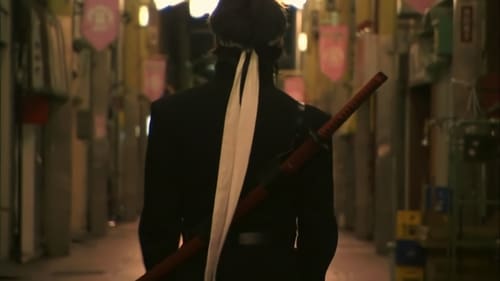
Momotaro and Hidemaro are 1st-years at Otokojuku, a private boys school where true men are made. Momotaro, proficient in academics and martial arts becomes good friends with Hidemaro an underachieving weakling. Omito Date, former student leader, plans his revenge against his former school. Now leader of an evil army from rival Kanto Gogakuren school he fully intends on taking over Otokojuku.

Jun, a 16-year-old teen, refuses to stand while the national anthem is being played at his graduation ceremony. This event will totally change his life, as he involuntarily becomes the new hero of a rebel anti-system youth. Singer Muy's pop music and his friend, Nozomi, with whom he shares his sadness and hatred for the society that surrounds them, help him bear his terrible loneliness.

The experiences and relationships of five senior students at a rural high school, during the last year leading to graduation.

Middle-aged farmer Noda Masao (Daichi Yasuo) is a good, honest man, but his attempts for marriage have all met with failure. Through a friend, Masao meets Liberty (Ruby Moreno), a Filipino woman working in Japan. When they decide to get married, Masao borrows money from his Agricultural Association and travels to the Philippines for the wedding - only to discover that it was all a scam. Stranded in Manila with no money, Masao ends up staying to work. One day he meets a beautiful farmer's daughter, Christina (Alice Dixson), reawakening not only his chances for love, but also his love for farming.

Manzo Hatano
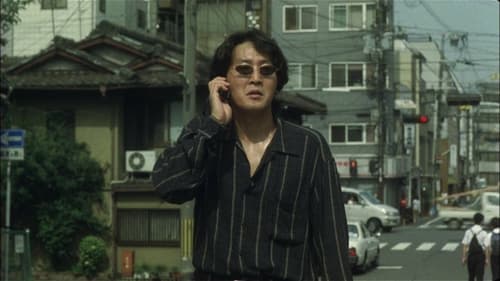
Former childhood friends Kadoya Kaneo and Tochino Masatatsu cross paths again. Kaneo is now a yakuza member, while Masatatsu is a nightclub owner with a distaste for crime gangs. When a yakuza boss dies, a struggle for his position takes place between Kaneo's boss Awano and the young Nakahira. Nakahira's men try to extort money from Masatatsu, bringing him in between a yakuza battle.

Kodama learns that his old classmate Hayashi is getting married to an idol, and organizes a junior high school reunion.

Yukihiko's first film.

Hama-chan and Su-san go fishing during a business trip, but Hama-chan has to give a lecture on Su-san's behalf in a case of mistaken identity.

A violent detective who can handle assault and blackmail in a straight forward manner.
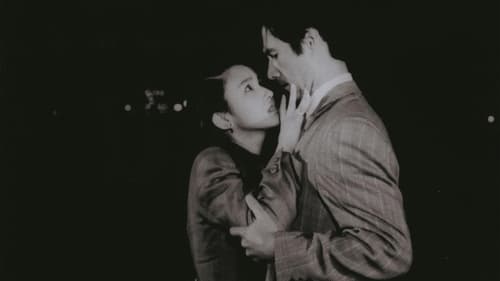
Parking attendant
A Tokyo psychiatrist is hoping to better his career by marrying the daughter of a prominent doctor. The match is threatened however when an attractive but very troubled tourist guide comes to him for consultation...

Takuzo Nakamori
A trading company employee's girlfriend loses her memory while on a trip. In place of the friend who was supposed to have accompanied her the whole time is a mysterious man.

Eighteen-year-old Isamu works at a coffee shop. Rebelling against his father, he eloped with Momo (Yasuko Tomita). One night, Isamu injures a middle-aged woman by hitting her with his bicycle.

Yuki Kimura, a company president's secretary, agrees to marry his son Yutaka on the president's recommendation. When Yutaka breaks up with his lover, a hostess, she implies she's going to commit suicide. In a panic to get to her quickly, Yutaka punches a man at a taxi stand. The next day, when Yutaka's lover hears the news about a man dying and realizes it was the man Yutaka punched, she demands money...
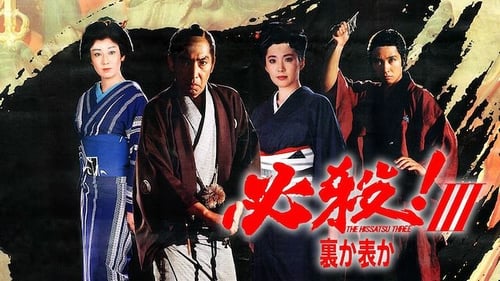
Third movie in the Hissatsu (Sure Death!) Series. Chasing the killer of a lawman, a group of assassins fall foul of a group of blackmarket financiers who dispatch their own hitmen to dispose of them.

Director-General of the Defense Agency
Originally released in Japan as "The Return of Godzilla" in 1984, this is the heavily re-edited, re-titled "Godzilla 1985". Adding in new footage of Raymond Burr, this 16th Godzilla film ignores all previous sequels and serves as a direct follow-up to the 1956 "Godzilla King of the Monsters", which also featured scenes with Burr edited into 1954's "Godzilla". This film restores the darker tone of the original, as we witness the nuclear destruction of giant lizard terrorizing Japan.

General Mashita (segment "November 25, 1970")
A fictional account of the life of Japanese author Yukio Mishima told in four parts. The first three parts relate events in three of his novels: The Temple of the Golden Pavilion, Kyoko's House, and Runaway Horses. The last part depicts the events of 25th November 1970.
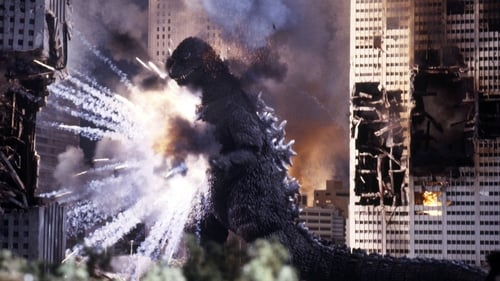
Director-General of the Defense Agency
After a fishing boat is attacked, the sole surviving crew member realizes it is none other than a resurrected Godzilla. However, efforts to bring the story to light are suppressed by the Japanese government amid growing political tensions between the United States and the Soviet Union, who are both willing to bomb Japan to stop the monster.

Chief Sasaki
A double suicide happens in Morioka in Iwate Prefecture. The two were employees of rival real estate companies. A prosecutor who senses a setup exposes the truth.

Detective Matsuno
An office lady joins a "mistress bank", starts falling in love with her client and gets involved in a murder case.
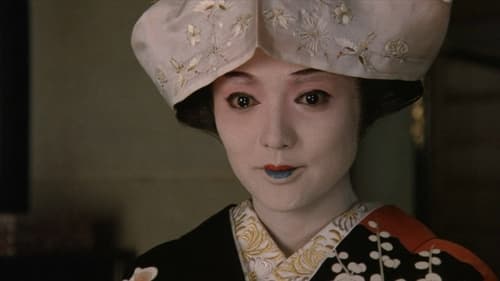
This story is based on the novel "Jo no mai" by Tomiko Miyao which is based on the life of painter Shōen Uemura (1875–1949), the first woman to be awarded the Order of Culture. The title refers to the masterpiece bijinga ("picture of a beautiful woman") that Uemura painted at the age of 61. The main character, Tsuya Shimamura, is born in Kyoto as the second daughter of a tea trader who dies before her birth. Tsuya, who loves painting more than anything and is hopeless at housework, attends art school and at age 15 receives the name Shōsui (from the characters for "pine" and "green") from her teacher. The crown prince of England purchases one of her works, propelling her to fame overnight. The novel portrays the remainder of her stormy life, during which she is impregnated by her teacher and raises a fatherless child; through it all she devotes herself to her painting, undaunted.
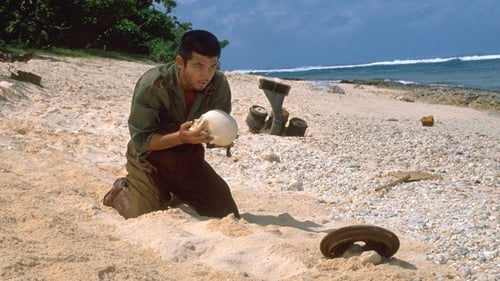
Teijiro Toyoda
Story of three people, a barber, a Christian and a graduate of the Tokyo Military Academy during the 2nd World War.

Brings Shingo face to face against Yagyu Tajima, the Shogun’s fencing instructor in a match that could save a domain near Osaka. Meanwhile Shogun Yoshimune must face a painful decision whether or not he can finally see his son for the first time.

The president of the Japanese National Railways is found dead during a period in which train service is plagued by numerous layoffs, strikes and shutdowns. The government says that the president was murdered; the police claim it was a suicide. A quizzical reporter follows the case for years, but the basic question remains unanswered: was the victim killed by members of the burgeoning Communist movement in Japan, or was the death stage-managed by the authorities in hopes of discrediting the Communists?
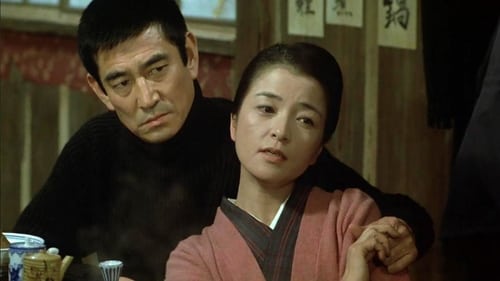
A detective goes out of his way to crack the case of a serial killer who specialises in murdering police officers.

A lavish retelling of the true story of the final voyage and ultimate destruction and sinking of the battleship Yamato, Japan's greatest flagship during the Second World War.

Genyu
A tragic love story between a prostitute and a young trainee monk.
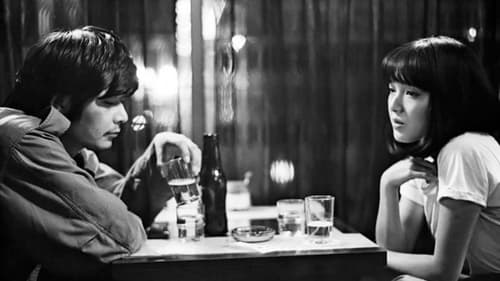
Mariko is living the life of a typical Japanese college student in the 70's, spending far more of her time balancing boyfriends and part-time jobs than on her schoolwork. She finds herself torn between a former boyfriend who's the tough, insensitive-but-sexy, type, and a new acquaintance who's more sensitive to her feelings, but who still acts childishly selfish at times. Will she choose one of them, or decide to go her own way?

Inspector Yabe
Samonji, a reporter, receives a message on his answering machine from his friend Takada that says "stop it... zero plan! February." Learning that Takada is dead, Samonji begins an investigation. He and his younger sister Fumiko investigate major events happening in February but cannot find anything relevant. Meanwhile, Kanzaki, a doctor who works at a clinic on a remote island, is working on a plan to extort two billion yen.

Tokubei
This is the story of "The Forty-Seven Ronin." Based on historical events in 1701-2, the movie tells the tale of the Asano clan's downfall and the revenge of its former samurai on the perpetrator of the catastrophe. Lord Asano was goaded, or tricked, into drawing his sword inside the Shogun's palace -- a crime which carried the death penalty. The newly installed Shogun was furious at Asano and ordered all his clan's assets seized, meaning some 20,000 samurai and commoners were unemployed and landless at a stroke. Forty-seven of these ronin (masterless samurai) banded together to take attempt revenge on Lord Kira, who had goaded Asano into drawing his sword.
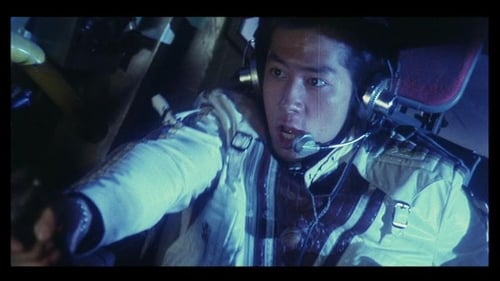
Kido
The peaceful planet of Jillucia has been nearly wiped out by the Gavanas, whose leader takes orders from his mother rather than the Emperor. King Kaiba sends out eight Liabe holy seeds, each to be received by a chosen one to defend the Gavanas. Each recipient, ranging from hardened General Garuda to Gavana Prince Hans to young Terrans Meia, Kido, and Aaron all have different reactions to being chosen.

Dr. Katô
A nurse is framed for her involvement in the hospital murder of a politician who was threatening to expose corrupt practices. She escapes from jail but is captured and sent back, resulting in the rest of the inmates being punished, added to which of a new, tougher, head of security arrives to take up her new job....
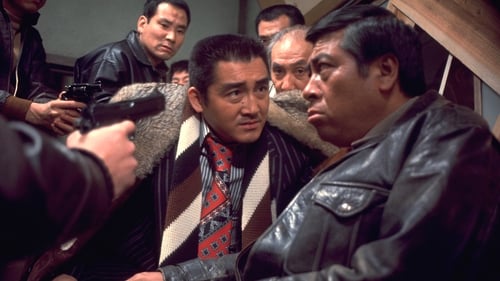
In the setting of the Hokuriku region, where the snow and cold winds rage, for the first time in true-life yakuza film history, director Kinji Fukasaku shows battles among yakuza who value land over tradition. Hiroki Matsukata stars as Noboru Kawada, a Hokuriku yakuza who will use any measure for survival, disregarding parents, brothers, and tradition.
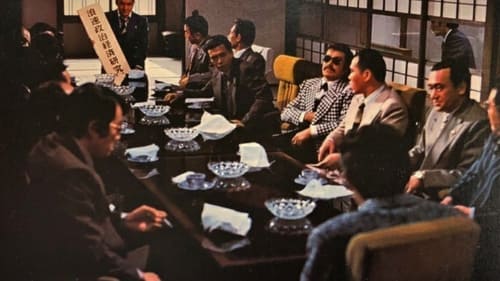
A yakuza leader must balance his violent tactics necessary for the rough streets of 1960s Tokyo with the domestic needs of his daughters.
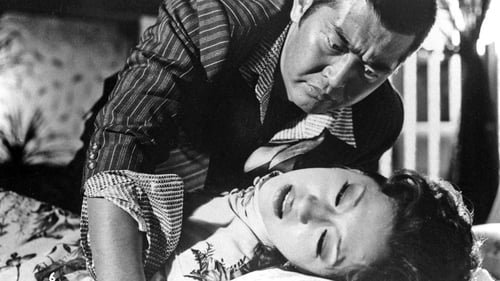
Takechi Hatano
A police investigator cracks down on yakuza business, but once he realizes the police are in negotiations with certain factions, he sides with his own syndicate of choice.
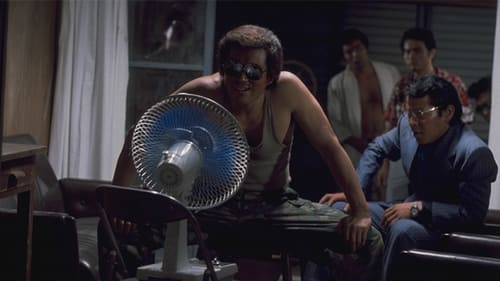
Chiba, looking gnarly, and acting as animalistic as ever, stars alongside Matsukata as violent gangsters battling their way through fight after bloody fight with rival yakuza on the streets of Okinawa.

The eighth sequel of the series by the successful “Fukasaku and Bunta” collaboration revolves around the men of a lesser organization that are constantly bullied by the upper organization and “bleed in vain” in gang wars.

Amidst Japan's postwar economic boom, yakuza factions in Osaka fight for survival when Japan's largest crime syndicate plans a hostile takeover.

Izeki
The seventh in the shocking "Jingi Naki Tatakai" movie series, which exposes the true lives of the yakuza that is hidden by a mask of "jingi". The next stage of this continuing drama is the Kanmon Channel where the Owada and the Kyoei groups are battling for territorial rights and drug smuggling. The Owada sends their man, Tetsu, and his friend Shuji to kill the Kyoei boss. With the promise of fame and riches, Shuji takes the fall and goes to jail for 7 years. But when he's released, he discovers that he and Tetsu have been all but forgotten by the Owada. Feeling betrayed, Shuji takes natters into his own hands and becomes an unsuspecting pawn in an internal conflict and an assassination attempt on the Owada boss. And now angered, Shuji seeks revenge...

Yamada
Based on a true story, an elderly woman resiliently spends nine months attempting to retrieve her husband's dead body, fighting government bureaucracy and indifference all along the way.

Hideo Hayakawa
While Hirono is in prison, his rival Takeda turns his own crime organization into a political party, whose two executives stir up new tensions in their thirst for power.
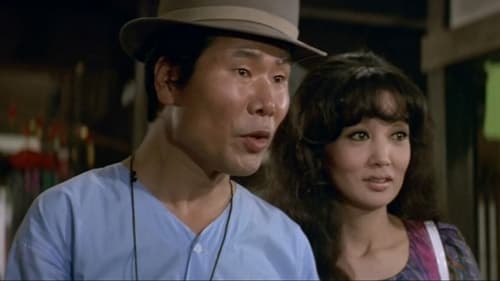
On the road again, Torajiro meets a kindred spirit in Lily, a lounge singer.

A man who survived the war carries the will of his comrades in arms, walking across the country visiting the bereaved families.

Yoshikawa
A detective is charged with investigating a bank corruption scandal.

杉良

Kiba Okaminosuke finds himself entangled with a group of prisoners being transported to their executions, one of whom oddly looks exactly like his dead father. There are crooked gold miners, a beautiful girl who is unfortunately a complete lunatic and a dojo master who is obsessed with killing Kiba just to prove that his school's sword style is the best.

This is the story of a vagrant samurai – the solitary, savage and scrupulous Kiba – who arrives at a village to defend a beautiful, blind woman against a sinister plot. Her assailants then send against him another samurai, named Sana, who is without scruples. The fight between them will become personal, for the honor and love of the blind woman.

Bungo becomes a single parent when his wife leaves him because of his drinking and gambling. Deciding to quit his vices, he works menial jobs, drifting from city to city. However, not completely losing his gambling tastes, he became a hunted man and must escape to Tokyo after he was found cheating at dice. Bungo and his son Kenichi comes upon the Kizaki Family in Asakusa, where more troubles are awaiting them...

Ippusai
Loyal samurai Samanosuke is attacked, mutilated, and left for dead while carrying out a mission for his clan. He recovers but has lost an eye and an arm. Taking a new identity as Tange Sazen, he searches for a stolen urn which has hidden significance to his clan. But Tange Sazen has his own reasons for seeking the urn.

Hidejiro is a wandering yakuza with a ‘karashi botan’ (Chinese lion and peony) tattoo. Owing a favor to the Soda Family, he kills the boss of the rival Sakaki Family. When the Soda attacks the Sakaki and double-crosses him, with sword in hand, Hidejiro seeks brutal retribution.
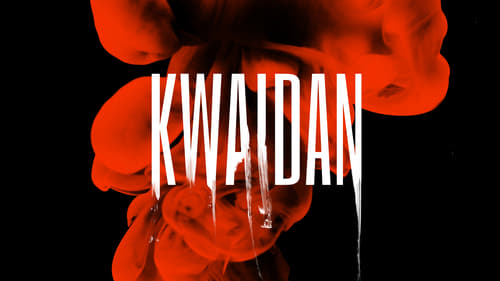
(segment "Chawan no naka") (uncredited)
Taking its title from an archaic Japanese word meaning "ghost story," this anthology adapts four folk tales. A penniless samurai marries for money with tragic results. A man stranded in a blizzard is saved by Yuki the Snow Maiden, but his rescue comes at a cost. Blind musician Hoichi is forced to perform for an audience of ghosts. An author relates the story of a samurai who sees another warrior's reflection in his teacup.

The first film with Tetsuro Tamba as a detective. An exciting drama about the pursuit of a criminal, which takes place in Yokohama. Tamba enthusiastically plays a police inspector who pursues a criminal who kidnapped his sister.

This tragic drama shows a young man fettered by Bushido, the way of the Samurai, who tried to escape the chains of his position, but was being forced to die. When the Tokugawa Shogunate ruled the land, Tatsuno castle in Wakisaka Clan's home of Harima held an established custom, the inspection of the arms warehouse. The Government Inspector Okuno Magodayu found a slight bit of dirt on the point of a spear and mentioned it with disdain. Ezaki Shinpachi heard it and started an argument with him. Magodayu then sent a a letter of challenge to him because he felt insulted by a low-ranking underling without a title. As it turned out Magodayu was killed. Since then, Shinpachi and the Okuno family have had continuous revenge duels. The tension mounts as this story builds to an extremely violent climax, when blood must pay for blood if the clan is to survive!
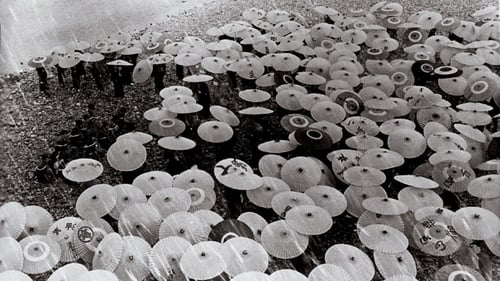
Kamo Serizawa
Assassination begins with the events of 1853 when "four black ships" anchored at Edo Bay, sparking civil unrest and the major political manoeuvring that saw the end of the Tokugawa Shogunate. At a time when assassination had become a disturbing political tool, Shinoda's film follows Hachiro Kiyokawa, an ambitious, masterless samurai whose allegiances drift dangerously between the Shogunate and the Emperor.

Junkichi
The Wayside Pebble is an effective drama about the hardships of a childhood spent with a brusque, cold-hearted father and a submissive mother. The year is 1910 and the place is a small Japanese village. Goichi is suffering because he wants to go to school, but his family is too poor to afford that luxury. Even when a kind friend agrees to help out, Goichi's father refuses to give in to his son's request for an education. Instead, he sends Goichi off to work as an indentured servant for a cold-hearted merchant and his family. As tragedy strikes and the suffering of the young boy increases, he begins to look for some way out of his bleak situation.

Kurahashi
Shiba, a wandering ronin, encounters a band of peasants who have kidnapped the daughter of their dictatorial magistrate, in hopes of coercing from him a reduction in taxes. Shiba takes up their fight, joined by two renegades from the magistrate's guard, Sakura and Kikyo. The three outlaws find themselves in a battle to the death.
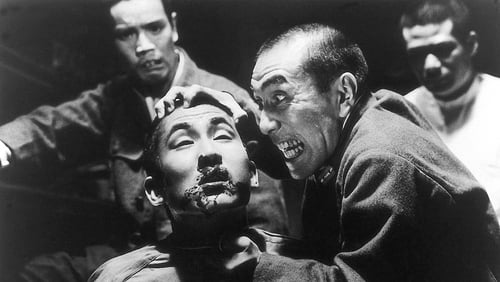
Director Jun'ya Satô's debut film focuses on the inhuman training of recruits, the brutal drill system that reigned in the Japanese army during World War II, where in the first two years of training, ordinary people were turned into inhuman killers. For his first film, the director was awarded the Blue Ribbon Awards in the Debutant of the Year nomination.

A gang plans to steal twenty billion yen by safecracking tactics; however, they discover that one of the gang members is an infiltrating cop.
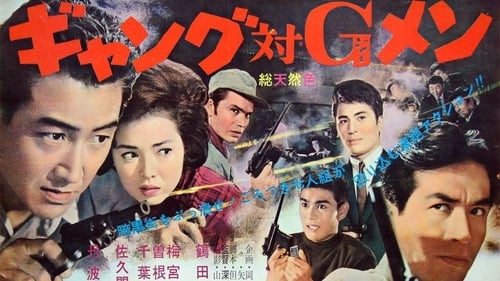
Yuichi Noguchi
Two rival gangs of gangsters clash for dominance of a neighborhood.

as Hisakazu Yoshii

Film about the 2-26 Incident.

A touching story about a young boy, Genta, who bravely takes on life's challenges in hopes of finding a better life for himself and his sickly mother.

The lives of several Japanese families are shattered as the USA and the USSR move toward war, Japan finds itself caught in the middle, and Tokyo is ultimately evacuated as the two superpowers invoke the 'nuclear option'.

Sheriff Goro goes undercover to investigate drug smugglers.

(uncredited)
After handing in a report on the treatment of Chinese colonial labor, Kaji is offered the post of labor chief at a large mining operation in Manchuria, which also grants him exemption from military service. He accepts, and moves to Manchuria with his newly-wed wife Michiko, but when he tries to put his ideas of more humane treatment into practice, he finds himself at odds with scheming officials, cruel foremen, and the military police.
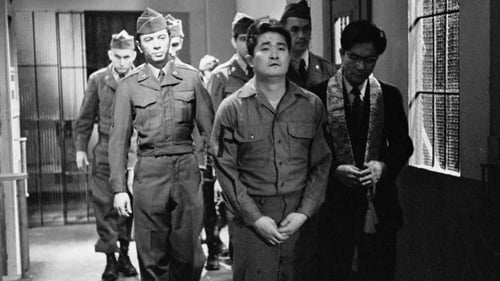
Television production of I Want to Be a Shellfish. On a post-war peaceful day in Japan, Toyomatsu Shimizu, a barber as well as a good father and husband, is suddenly arrested by the Prefectural Police as a war criminal and sued for murder. According to the accusation by GHQ, Toyomatsu "attemped to kill a US prisoner", which was nothing but an order by his superior and failed after all with hurting the prisoner by weak Toyomatsu. Also, Toyomatsu was driven to corner at the trial by the fact that he fed the US prisoner some burdock roots to nourish him. Toyomatsu believes nothing but being not guilty, but he is sentenced to death by hanging. Prior to the execution, Toyomatsu writes a long farewell letter to his family, the wife and the only son: "If I ever incarnate, I hate to be a human being any more.... Oh yes, I would like to be...a shellfish living on the rock-bottom of the sea."
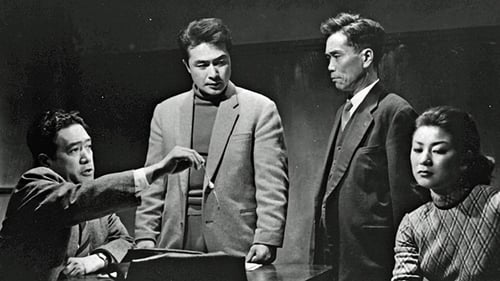
After discovering a slaughtered corpse, the investigating team of the Tokyo Metropolitan Police Department began canvassing the area around the crime scene. As a result, they found a wallet with bloodstains that seemed to belong to the victim, a woman's wallet that did not fit the field, earrings, and other valuable materials, which led them on a foot search. The woman's purse had been picked up by a male prostitute on the subway, and from the prostitute's testimony, they were able to identify the pickpocket's face, but the next day, the man was found dead in a road accident, apparently murdered.

Detective A
Junai Monogatari AKA Story of Pure Love is about two poor youths, Mitsuko and Kando, rebelling against society in various ways, who are desperately trying to be together despite tortuous circumstances. The film depicts their lives as thieves, menial laborers who can get little pay, society outcasts, and of course, lovers. Junai Monogatari depicts, mostly, their struggles within the Japanese reformatory system and Mitsuko's worsening sickness.
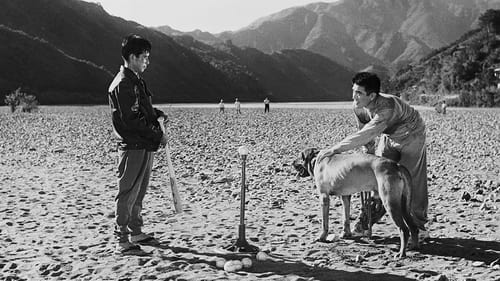
Shirô Kurita
A talent scout moves sharply, dead-set on signing a promising athlete to the baseball team the Toyko Flowers.
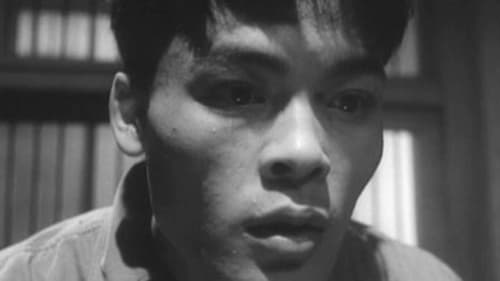
Detective Sugita
Police beat a murder confession out of four innocent men who are then sentenced to death. Based on a true story.
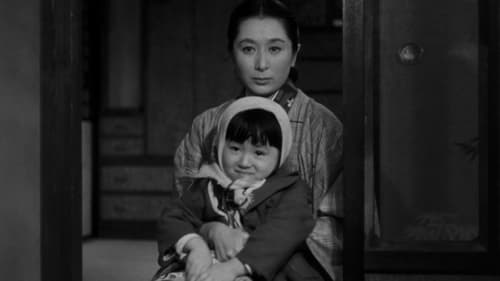
Shigeru Anzai
Fumiko, mother of two children and wife of an unfaithful man, shares her family life with her budding vocation as a poet. The beginning of her successful literary career coincides with her divorce and her breast cancer diagnosis. In the last stage of her life, she meets a young journalist from Tokyo who wants to write a story on her life.
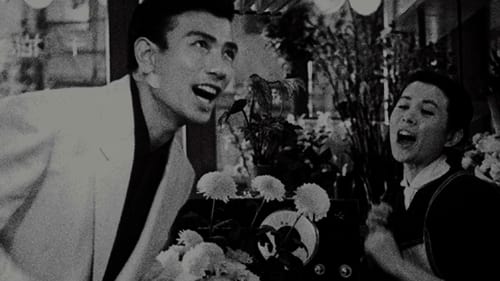
(uncredited)
Masaki Kobayashi directs this romantic drama concerning a family of florists.
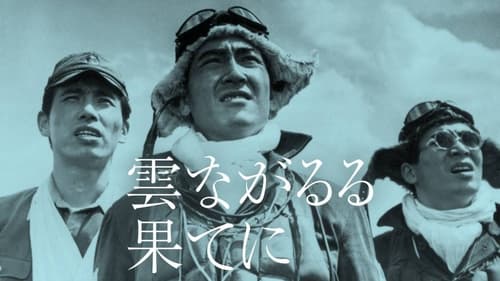
A movie that depicts the tragic fate of many Yokaren flight-academy pilots.
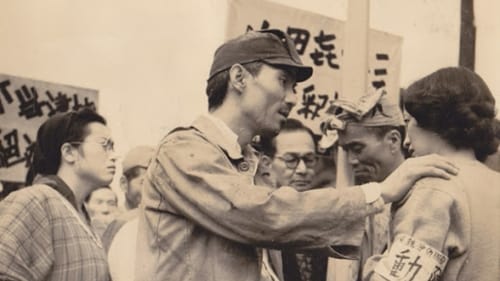
Kiichi Yamada
Onna Hitori Daichi wo Yuku (A Lonely Woman in a Lonely Land, Kinuta Production, 1953) was the second feature film directed by Kamei Fumio, who is known as a master of documentary films, and followed his “Haha Nareba Onna Nareba(Become a Mother, Become a Woman)” (1952).

































































